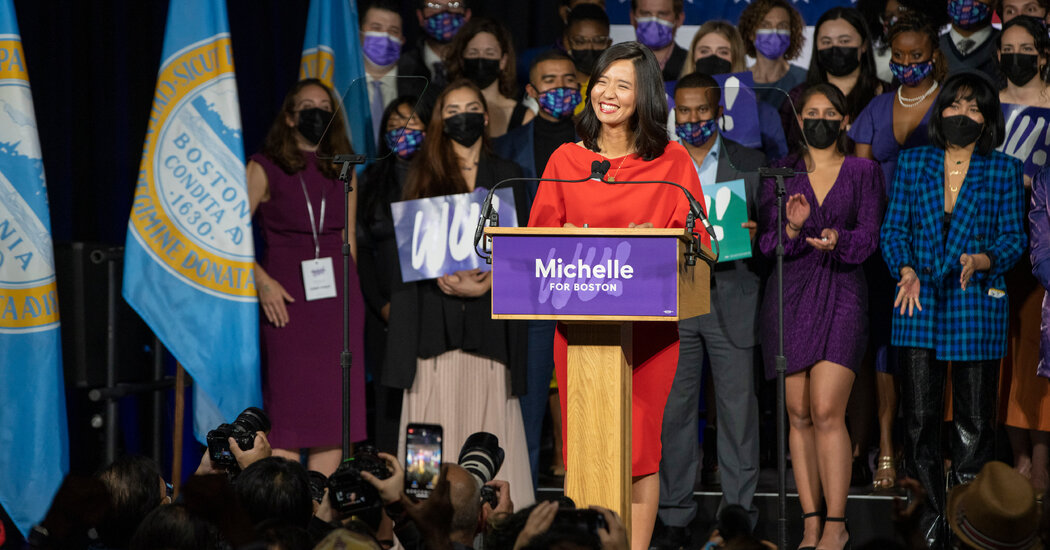
Boston has been booming, as jobs in technology, medicine and education attract waves of young professionals. But that success has come at a cost, forcing working-class and middle-class families to leave the city in search of affordable housing.
Takeaways From the 2021 Elections
Ms. Wu has promised to push back against gentrification, with policies tailored to help lower-income residents stay in the city, such as waiving fees for public transport, imposing a form of rent control, and reapportioning city contracts to firms owned by Black Bostonians.
It will not be easy for her to deliver. Rent control, for example, has been illegal in Massachusetts since 1994, so restoring it would require the passage of statewide legislation. The most recent effort to roll back the ban on rent control was rejected resoundingly by legislators last year, by a vote of 23 to 136.
Her plans to restructure the city’s planning agency have worried many in the real estate and building sectors, which thrived while Mr. Walsh was mayor. And Ms. Wu will have to take control of a sprawling government apparatus whose powerful constituencies can slow or block a new mayor’s agenda.
Wilnelia Rivera, a political consultant who supported Ms. Wu, said she would face pushback.
“The reality about power is that it never wants to give up any, and we’ll see what that looks like once we cross that bridge,” she said. “She is going to have to recreate that power coalition. It would be nice to have a mayor who isn’t necessarily in the back pocket of all the power players in the city.”
Ms. Wu comes in with high expectations for change, and will face pressure to move swiftly. One of the city’s most popular progressive figures, District Attorney Rachael Rollins of Suffolk County, warned that she ran the risk of disappointing many who have backed her.
“What I won’t do is allow our community to be sold a bill of goods and then when someone gets into the office, nothing happens,” she said.




